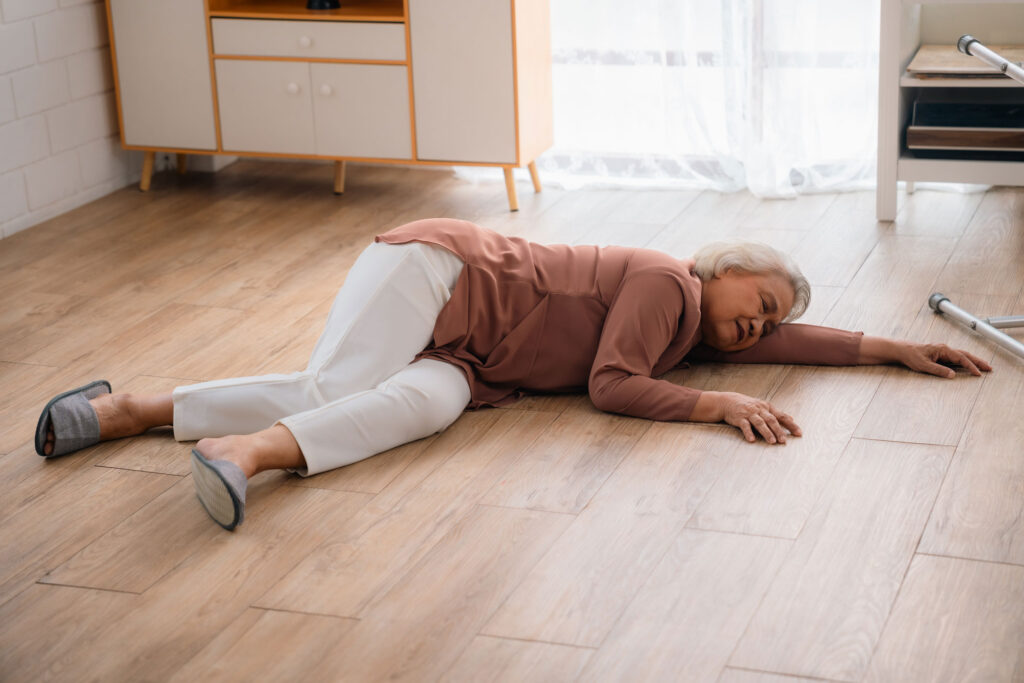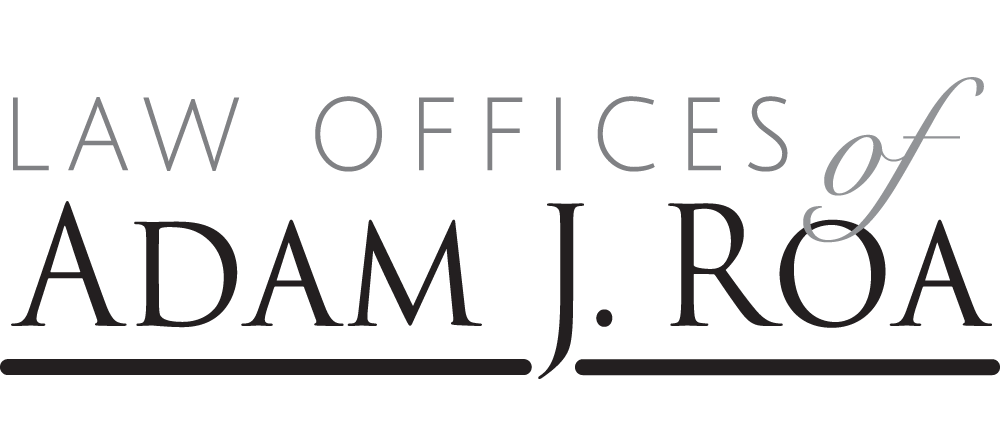
Nursing Home Negligence
Nothing is worse than leaving a loved one in a nursing home only to find out later that she was neglected. The most common serious problems are needless falls, bed sores caused by negligence, and physical abuse.
- Needless Falls at Facilities
Nursing homes and assisted living facilities are under a duty to care for their residents. This includes a standard of care when it comes to their residents who are at risk of falling. (read more) - Bed Sores and Negligence
Nursing homes and assisted living facilities will argue that every resident is a fall risk and no liability should fall on the institution. That is not absolutely not true. (read more)
Let the nursing home know that they will be held accountable for their negligent action. Let our lawyers lead the charge against the assisted living or nursing home if they have wronged you or your loved one.
You do not pay anything unless we win.
Elder Law Specialists
Our attorneys are focused only on elder law issues. That means you get practical advice from lawyers who understand the complexity of elder law situations and can guide you through this critical time of life.
Proven Results
Nursing Home and Assisted Living Facility Litigation
We were involved in winning litigation for a number of cases. Nursing home and assisted living litigation recovery fees normally range from $30,000 to $425,000. Of course, the outcome is highly dependent on the facts of each case. The cases below illustrate some of the issues.
Patient v. Healthcare Provider: Negligent Care (Fall)
Client’s mother (“Regina”) had a hospital visit that resulted in a brief stay at a nursing home for rehabilitation and then a transfer to an area assisted living for long term stay. She was 85 years of age. Regina had a history of being wobbly on her feet, and the assisted living facility was informed and fully aware of her condition. While Regina liked to walk around unassisted, she needed constant supervision—which was the primary reason why the family chose assisted living rather than transitioning her back to her house.

Client received a call one afternoon from the assisted living facility—Regina had fallen and was being rushed to the hospital. She had a severe break at her hip. From that point, other complications arose, and she died 11 months later. The genesis, however, of her health decline was pinpointed as the fall at the facility. What had happened? Why did she fall? How could she have fallen with an attendant constantly with her? The explanations from the facility were vague and did not make sense.
A suit was filed against the facility for wrongful death. Amongst other items, her medical records at the facility were examined. However, the medical records were curious. There were detailed notes of her daily routine, but the details regarding the day at issue were conspicuously absent. Had the facility purposely taken out the critical medical records for the day at issue? After aggressive pushing on this issue, it was revealed through “recovered” medical records and testimony from a key nursing aide that a nursing aide did indeed assist Regina in walking with her to the elevator. The nursing aides run on eight-hour shifts, and the next nursing aide was running late. So, the nursing aide who assisted Regina, instead of waiting for the late aide, left Regina by herself in the middle of the hallway waiting for the elevator. As she was unassisted, she fell. The case was soon settled.
Patient v. Healthcare Provider: Negligent Care (Fall)
After a brief hospital stay and during a rehabilitation stay at an area nursing home, a family meeting was called by the nursing home to decide on the next course of action for their mother, “Flo.” The nursing home advised them that Flo would do better with more specialized sub-acute rehabilitation than their nursing home could provide. In conjunction with a staff member at the originally discharging hospital and after another examination for Flo, both the nursing home and discharging hospital recommended that Flo would be better served at a certain facility for a more intense short term rehabilitation. The goal was to strengthen her muscles, help her become more independent, and, after two or three weeks, send her home strong so her family could provide the necessary care to keep her home. Flo was 78 years of age.
Flo transitioned to the facility on a Saturday. The family visited Flo on Saturday and again on Sunday, and all appeared to be fine. Client tried to contact Flo on Monday morning, but she did not pick up the phone. The head nurse was contacted, who told client that Flo was eating breakfast and taking her medications and could talk later. Three hours later, client again tried to call Flo. Still, Flo did not pick up the phone. The head nurse was contacted, who stated that Flo was doing her physical therapy and could talk later.
Five hours later, client visited Flo at the nursing home. When she entered the room, she saw Flo was lying on her bed, gasping for breath (she was on an oxygen tank). A nurse was in the room but was assisting Flo’s roommate to the bathroom. Client asked the nurse to help her mother who was obviously having trouble breathing. The nurse aide said “couldn’t she see that she was busy. I will get to your mother after I am done here.” Client told the nurse that her mother needed immediate help, but the nurse was unmoved.
Client ran out to the head nurse, who immediately responded, noticed the oxygen level was way too low, and increased the oxygen level and called for an ambulance. The emergency technicians with the ambulance increased her oxygen level even further and raced her to the hospital. Shortly after midnight that day, Flo died.
What had happened? How long was Flo in respiratory distress? How long was her oxygen level way too low? And why didn’t anyone help her when she was in obvious distress? The family contacted our office, and a suit was threatened against the facility. A settlement occurred in the months that followed.
Patient v. Healthcare Provider: Negligence (Incorrect Medication)

By the time “Mabel,” 91 years of age, was admitted to an area nursing home, she suffered from a number of profound ailments. However, given the appropriate care and medication regimen, the last few years of her life should have been relatively peaceful. Less than a month later, she was dead.
Of the many ailments, Mabel suffered from diabetes and was prescribed a certain regimen of medications. Within one week of her admittance, she weighed 119 pounds, having lost 9 pounds. At that time, her elevated blood glucose level was over 300 mg/dL—normal blood glucose level is 65–140 mg/dL. Mabel became increasingly agitated with no explanation given by anyone at the nursing home.
Medication was given to Mabel in an attempt to “calm her” but without recognition of the severe side effects on 91-year-old individuals. After her dosage was increased, it was documented that she was lethargic, unresponsive, had tremor like movements to her extremities and did not respond to tactile stimuli. At that point, her blood glucose level was 470. She was rushed to the hospital and died that night. She had been in the nursing home 23 days.
A lawsuit was initiated and a thorough investigation revealed a pattern of severe negligence, gross medication management, and a complete failure to identify and recognize her distress. Terms of settlement were negotiated and accepted.
Patient v. Healthcare Provider: Negligence (Fall from Bed)
Dad assisted mom for years with her dementia and lack of mobility. Over the years, her dementia worsened and the level of attention needed by dad grew until at one point, dad’s health was worsening. His children feared the primary reason was the stress of caring for their mother, “Lois.” Paying for a home health aide was too expensive for them, so the options were limited. Finally, after great reluctance by dad and the children—clearly feeling there was no other choice—Lois was transferred to an area assisted living facility. Lois was 90 years of age. The family met with the assisted living admissions personnel and administrator, who were informed that Lois needed constant supervision, and it was noted that she needed two aides with her to assist in all functions.
Less than a month later, their dad received a distressing call from the facility. Mom had fallen from her bed. In the background he could hear her scream. The family immediately went to the facility and found her screaming in pain. Any time they tried to move her, she would scream even more. The assisted living staff said that they would look after Lois and that they did not need to call the ambulance. They stayed there all day. Her condition did not change. The advice continued to be not to call an ambulance, that things were under control. The next morning, Lois was still in obvious distress. Upon the family’s insistence, an ambulance was called, and Lois was immediately rushed to the hospital.
At the hospital it was revealed she had a severe break, where her femur was shattered like the spokes one would see on a closed umbrella. As pain medication did not help, the doctors advice was grim, either immediate surgery or amputation. Faced with horrible choices, the family choose surgery. As can be expected, this type of surgery for a 90-year-old was high risk. After surgery, during immediate recovery, she had a heart attack and died. Shortly after she died, the facility had the gall of asking for payment on an overdue bill.
Suit was immediately filed and medical records were examined. After exhaustive review it was discovered that on the day in question, when Lois was taken out of her bed, only one attendant attempted to take her out instead of the required two. The attendant couldn’t handle Lois and dropped her. After a number of months, settlement occurred.
Patient v. Healthcare Provider: Negligence (Bed Sores)
Client had a small family. It was him, his elderly wife at 82 years of age (“Mary”), and his only daughter and son-in-law. Client was 83 years of age. He had been struggling with caring for his wife, who had dementia, for years. Until recently, she never had a formal diagnosis of dementia. That is, until her most recent physician visit—it was moderate/severe Alzheimer’s dementia. A nurse was hired, and his daughter and son-in-law made routine visits to help when they could. Mary was enrolled in adult day care so as to give client a break.
This was fine for a few months, but her condition worsened. The family didn’t know what to do and did not want her to leave her home. However, the client’s health was starting to worsen, and there was concern that all of the stress associated with caring for her was having a disastrous effect on him. It was finally decided that Mary would live at an assisted living facility not too far away from client and his daughter and son-in-law.

Within a month, she developed a pressure sore on her heel. The family checked on her every day. Her conditioned worsened. After a number of days, they noticed that the bandage on the wound had a tag on it that indicated when the last time the bandage was changed—the bandage had not been changed in seven days. Upon this discovery, she was immediately rushed to the hospital, where it was discovered she had a severely infected sore. This began a path of her going in and out of the hospital and various nursing homes. Nine months later, she died.
After a lawsuit was filed, it was discovered that the assisting living facility had fired all staff in connection with Mary’s care. After a number of months, a settlement agreement was reached.
Consultation
It is important that we understand your ability to file suit. If the elderly victim cannot hire us themselves, then we need to understand your right to sue on their behalf. That would mean our review of the financial power of attorney or guardianship order (if the loved one is still alive) or your appointment as personal representative (in the event the loved one is deceased).
After our initial consultation, we will provide a roadmap outlining the pertinent issues in your case and how we are going to work to resolve those issues. You will know what to expect every step of the way.
Call us at 410-296-8166 x292.
